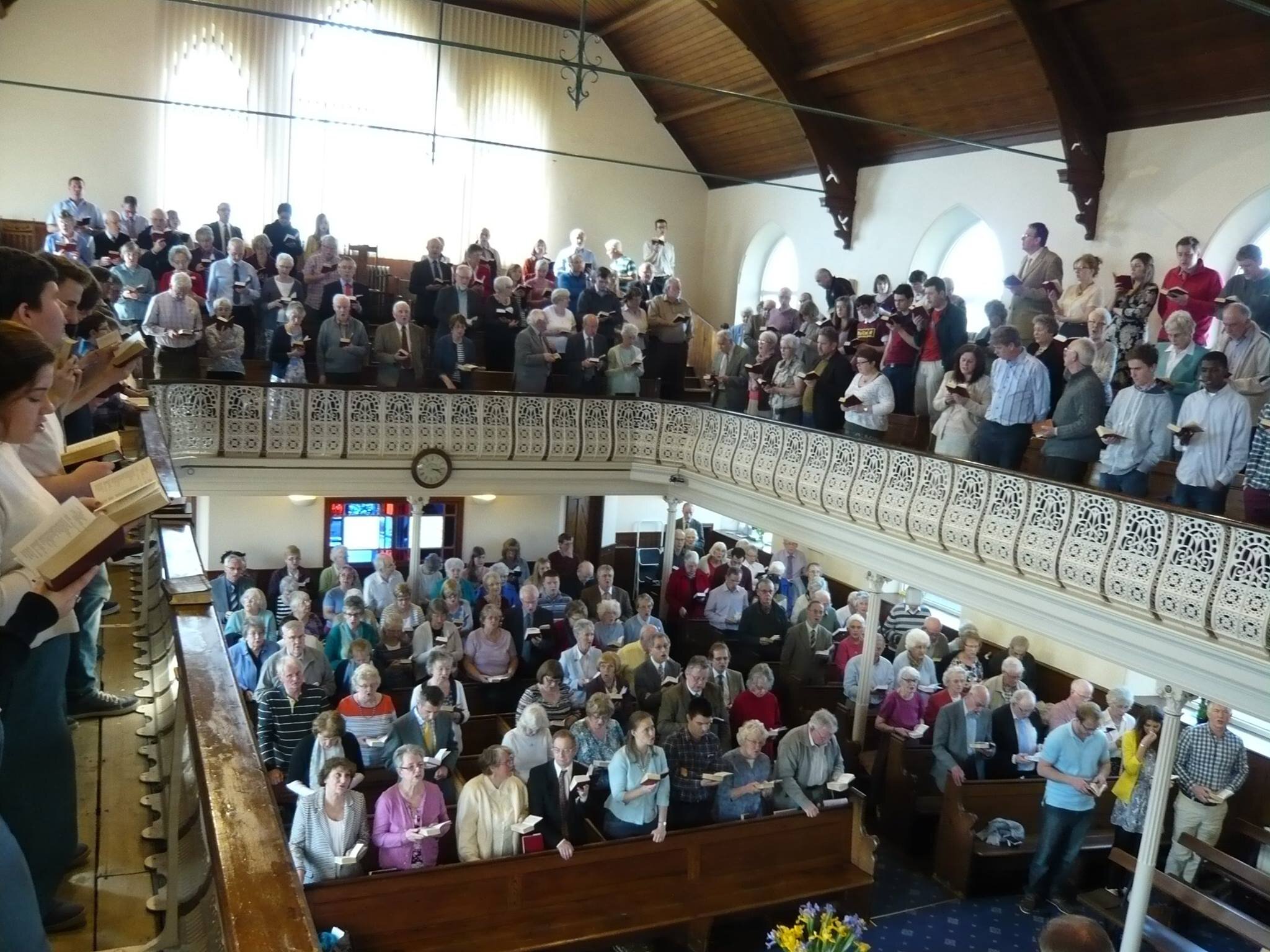Congregational Responsibility
by Hywel George, Pastor at Mount Pleasant Church -Twitter
The congregation has been given certain responsibilities for the preaching of the word of God. The New Testament mandates the people of God to make intercession for the effects of the Holy Spirit through the preaching of the scriptures. To be sure, this has direct bearing on Christians as individuals. Each Christian needs to recognise their appointed duty to make consistent supplication for the Spirit’s blessing on behalf of themselves, the preacher, and others who will come under the sound of the proclaimed word. During the Great Awakening, it was the practice of a Welsh pastor[1] to teach the following prayer to new converts: “Unless I have the power of heaven in the Word of Life I shall die.” This intercessory responsibility has direct bearing on Christians as an assembled people. Aware of their absolute dependence upon divine enablement, congregations need regularly to make petition for the transforming effects of the Spirit through the preaching of the word. This can occur during the worship service, in Bible studies, discipleship groups and Christian education classes.
Pierre Marcel is particularly pointed here:
If a believer is inclined to conclude that his pastor does not preach, let him know that he and the Church with him bear more responsibility for it than the pastor himself. We speak not of the Spirit whom the preacher alone is to receive, but of the Spirit of the Church, whom the Church, i.e. each believer, entreats and from whom he simply receives his share. The lot of a people of God is to hear the preaching of the word, which people he wishes to bless by hearing and answering their prayers. Does such a people exist in each of our churches? Who would dare presume as much? How is the worship hour prepared for and celebrated? It is especially disturbing how few believers pray seriously for these things and how great a number overlook this indispensable element. Relatively few invoke the Spirit with perseverance and with definite aims in mind. Practically nowhere are there meetings of prayer before the worship hour. Such negligence tends to contribute to rendering the preaching ineffective for a number of hearers, simultaneously depriving the preacher of his most substantial support. When, then, will the believers en masse understand that they are co-responsible for the preaching which they hear, yes, more than their preachers? If every pastor knew and felt that the congregation was praying and that each member had prayer, that the congregation was supporting him, interceding for him, that each member had benevolent feelings for the man whom God had given to instruct salvation, that each one loved him in God what preacher would not feel himself a new man? And whose preaching would not be transformed. Once again, preaching the word is a function and activity of the Church, not the function and specialty of one man. Before judging anyone, the believers should know that if they do not prepare for the preaching as we have just indicated they will receive very little, perhaps nothing.[2]
Gardiner Spring addresses the same concern:
It is a delightful thought to a young man entering upon the ministry of reconciliation that, unworthy as he is, the prayers of thousands of God’s people are continually going up, on his behalf, to his Father and their Father. He seems to hear the church of God saying to him, ‘We cannot go to this sacred work, but we will follow you with our prayers!’ How full of encouragement to the heart that trembles under a view of the responsibilities of the sacred office! How delightful this spiritual impetus to a mind almost ready to sink under its own conscious infirmities! And how unspeakably precious the thought to all who labour in this great word, whether in youthful or riper years, that they are thus habitually remembered in the prayers of the churches! Let the thought sink deep into the heart of every church, that their minister will be very much such a minister as their prayers may make him. If nothing short of omnipotent grace can make a Christian, nothing less than this can make a faithful minister of the gospel.
Dutch pastors often recite a familiar saying to their congregations: ‘If you pray me full, I’ll preach you full.’[3] Do evangelical congregations ‘pray their pastors full’? Most, it must be acknowledged, do not. Yet this is their mandate. This is their holy responsibility. Pursuing this is a sure indication of the Spirit’s preliminary work. Apart from it, however, very little progress can be anticipated. The people of God need to take up their responsibility to make intercession for the effects of the Holy Spirit through the preaching of the word of God.
[1] William Williams, Pantycelyn
[2] Pierre Ch. Marcel, The Relevance of Preaching (Grand Rapids: Baker Book House, 1963), pp. 101-102.
[3] Joel Beeke, Experimental Preaching (Westminster Seminary).

